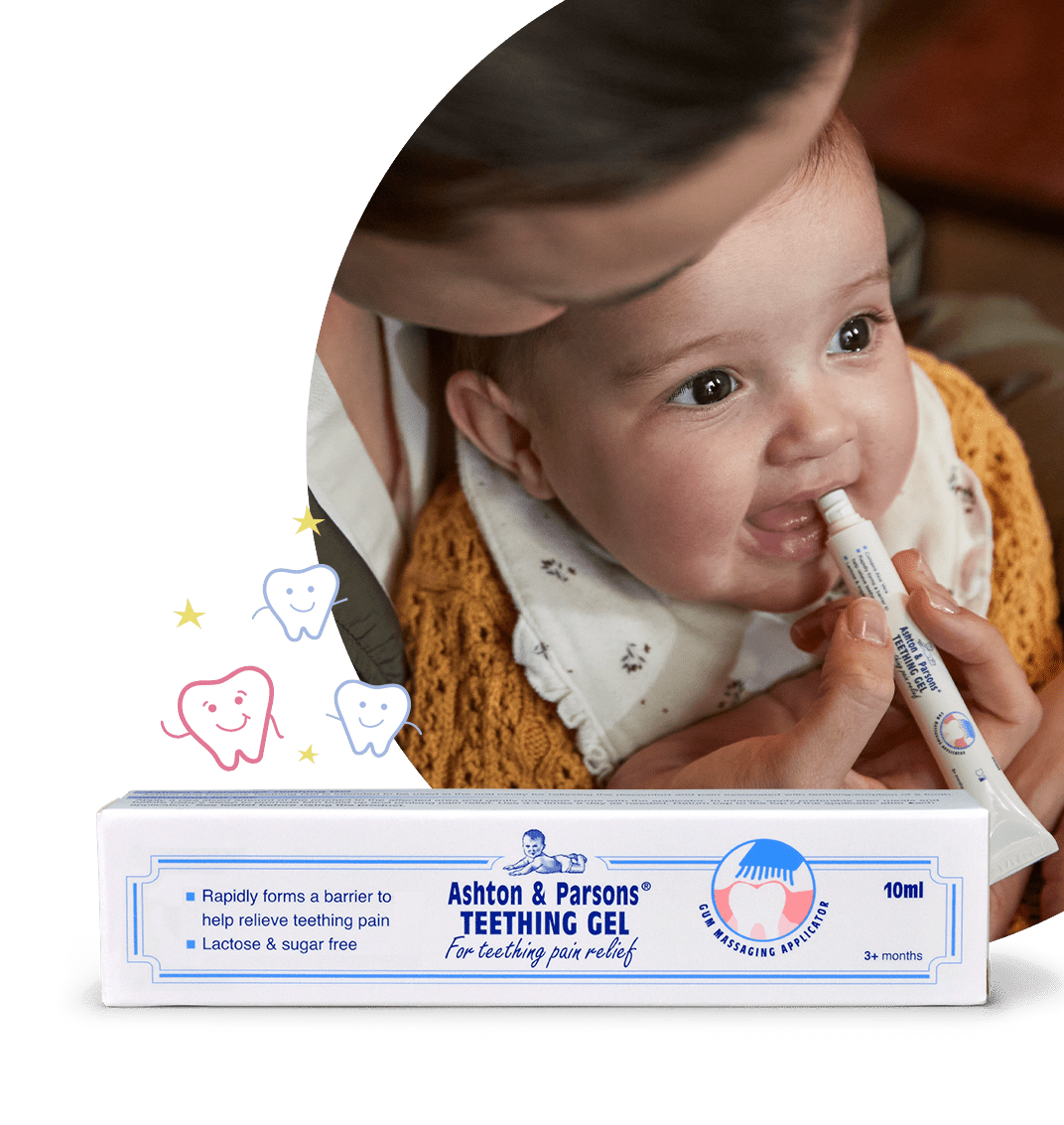Ask the Health Visitor: Teething Symptoms
Tracey Stone is a Health Visitor, and able to provide expert guidance on all things teething. Currently a registered practising Health Visitor in the community working with children and their families, Tracey also supports families in the online community with issues related to health and wellbeing. She is a qualified Paediatric Nurse with over 20 years’ experience and a Nurse Prescriber. She has also helped establish a respite service for Children with Special Needs.

Symptoms at bedtime
Q: My daughter is 7 months old, she has no teeth yet but is showing signs of teething. How do I differentiate between teething pain and general night time grumbles? There doesn’t seem to be a pattern with good and bad night’s sleep.
A: It’s likely that some nights she is struggling with teething pain as she is around the age when you are most likely to see a first tooth. If she is otherwise well during the day, but is just grumpy at night it may also be separation anxiety which begins to occur in children around that age. Practice separating yourself from her somewhere safe, so that she can adjust to relaxing without you around. It might also help to leave a comforter that smells of you.
Symptoms related to ears
Q: My daughter is 8 months old and in the evenings, she starts to pull and poke her left ear, to the point where she has cut the inside a few times. We have checked with the GP who has confirmed there’s no infection. My husband thinks it may be related to her hearing. Would this have anything to do with teething?
A: Pulling on ears is a very common symptom that parents observe just before teeth start to cut through. Good job taking her to the GP and ensuring you didn’t miss any other illnesses. Nearly all babies in the UK are offered hearing screenings in the first few weeks of life – perhaps the results from this would reassure your husband. In the meantime, keep her nails cut as short as possible and keep them smooth to protect her skin.
Teething symptoms and digestion
Q: My little girl is 8.5 months old and has one lower tooth breaking through. I’m wondering if teething can affect the digestive system, because even six hours after a meal she can vomit it up, which is usually triggered by milk or Calpol. Is this linked to teething and what can I do to help keep her food down?
A: The two main symptoms that link digestion and teething are excessive drooling and decreased appetite, neither of which are likely to induce vomiting. I would suggest making an appointment to see a healthcare professional. Often teething symptoms can disguise another illness so it’s best to make sure your baby is healthy.
Managing multiple symptoms
Q: I think my baby may be teething. There is so much dribble, he loves to gnaw on my fingers and his cheeks are very red. He also seems to have much more poo than usual – he goes after every couple of hours instead of once per day like he usually does. This leads to a lot of disturbance overnight. Is there anything I can do?
A: From what you have told me, your babies symptoms could suggest he is teething. Each and every single one of them could point to being caused by this natural stage of development. Often though other illness can be overlooked, being wrongly assumed that teething is the cause.I would advise asking your GP to assess your baby, just to be sure there is nothing else going on for him that he needs help and advice to manage. If your son is well established on solid food, then you could offer him cooled cucumber, carrots or bananas as another way to offer relief to his hot gums. Babies love to bite when teething, so eating healthy food at the same time is a double win.
Is a snotty nose a teething symptom?
Q: My 5 month-old has had a snotty nose for over two weeks now. Is this a teething symptom? Is there anything I can do for the nose other than usual cold treatments?
A: Some parents do suggest that their babies get snotty when teeth are on their way, but it is not one of the most common reported signs. It’s really hard and tiring for little ones to feed when they can’t breathe through their noses, so offering their normal milk, but perhaps a smaller amount more often, will help. Teething symptoms can be misdiagnosed, and in doing so other illness could be overlooked. It is possible that your little one has an infection which is causing their runny nose, so it may be worth asking your GP for their support.
Is dribbling a teething symptom?
Q: My baby is 6 months-old and always dribbling, blowing raspberries and putting his bib or hand in his mouth. What might this be a sign of and what should I do?
A: This behaviour is completely expected at this age. Drooling is often linked to teething, but the salivary glands will just be maturing too, which could be the cause of this. Keep changing his bib, as the skin on his neck will need to be protected from the constant dampness. Applying a surface barrier cream regularly to the area around his mouth and neck may also prevent a possible rash. It’s nothing to worry about, as most infants start teething around 6 months and it sounds like your little boy is well on track for a strong set of teeth.
General advice only, Tracey does not endorse the brand.





